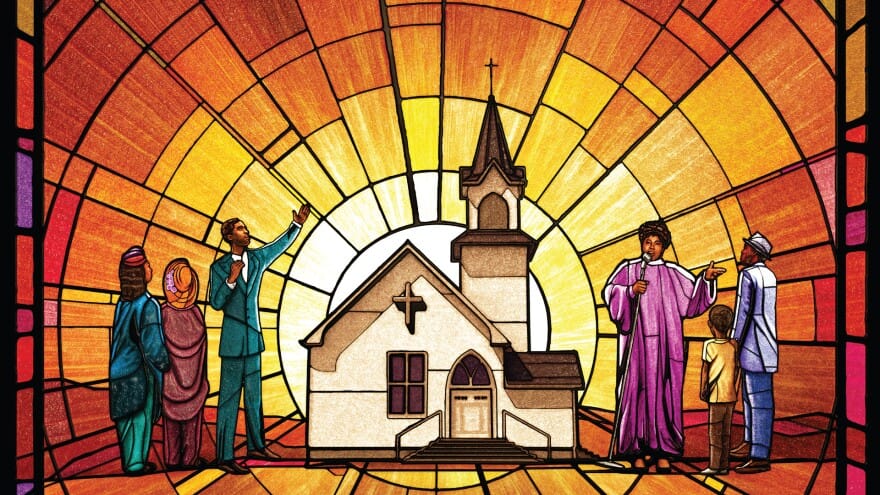Harmony Disrupted: Black Churches and the LGBTQ+ Challenge

The Black church, a cornerstone of resilience and cultural identity for generations, stands at a crossroads today. Its stained-glass windows illuminate stories of struggle and faith, yet within its pews sits a growing dissonance – the tension between the traditional embrace of family and the yearning for inclusivity of LGBTQ+ members. This is not a new struggle, but one echoing with fresh urgency as societal landscapes shift and individual voices grow bolder.
For many, the Black church is more than just a religious institution; it's a community center, a social safety net, a repository of shared history and a launchpad for collective action. This rich tapestry, however, often comes woven with threads of conservatism on matters of sexuality and gender identity. Doctrines rooted in centuries-old interpretations of scripture, societal pressures to maintain outward unity, and a fear of jeopardizing the already fragile sanctuary space the church provides, all contribute to a complex web of resistance to acknowledging, let alone embracing, LGBTQ+ experiences within its walls.
But denying the existence of LGBTQ+ individuals within the Black community is akin to silencing a choir member mid-hymn. Research suggests that Black Americans identify as LGBTQ+ at statistically similar rates to the general population. To disregard their presence is to erase their contributions to the church's rich tapestry, to invalidate their lived experiences, and to perpetuate a harmful narrative that equates faith with exclusion.
This is not to paint the Black church with a monolithic brush. Pockets of progress exist, congregations led by forward-thinking pastors who are actively re-interpreting scripture through a lens of inclusivity and compassion. Grassroots movements like "Black Christians for Marriage Equality" and "The Fellowship of Affirming Ministries" are paving the way for dialogue and acceptance. Yet, these strides often face stiff resistance from more conservative segments, clinging to traditional interpretations and fearing a slippery slope that would undermine the church's foundational beliefs.
The path forward isn't paved with easy answers. It demands not just theological debates, but a deep introspection into the very meaning of community, of brotherhood and sisterhood. Can we redefine these terms to encompass the full spectrum of Black experiences, including those on the LGBTQ+ spectrum? Can we find a way to uphold our faith while recognizing the inherent dignity and worth of every individual, regardless of their sexual orientation or gender identity?
Navigating this intersection requires acknowledging the pain inflicted by both sides. Many LGBTQ+ individuals have been ostracized, denied communion, and faced outright hostility within the church walls, leaving deep scars of rejection and alienation. Conversely, some faith leaders feel their core beliefs are under attack, the bedrock of their faith threatened by the winds of societal change.
But amidst the discordance, there's a melody of hope. Stories of reconciliation and acceptance are emerging, tales of congregations finding ways to bridge the gap, of families learning to navigate differences with love and respect. These narratives, amplified, offer a counterpoint to the dissonance, whispering the possibility of a hymn sung in unison, voices of faith and identity, blending in harmony rather than clashing in discord.
The Black church has always been a space for transformation, a crucible where faith is forged in the fires of adversity. The journey towards LGBTQ+ acceptance may be long and fraught, but it is a journey the Black church must embark on, for its own sake and for the sake of the diverse community it serves. Only then can the true gospel of love and inclusion ring out from its pulpits, echoing not just within its walls, but reaching every corner of the Black experience, embracing the full spectrum of humanity in its song of liberation.
I’m reminded of 1 Corinthians 13:13: “And now abide faith, hope, love, these three; but the greatest of these is love.” What are you thoughts? Do you believe love means overlooking living in sin? Does your church openly accept LGBTQ+ congregants?





